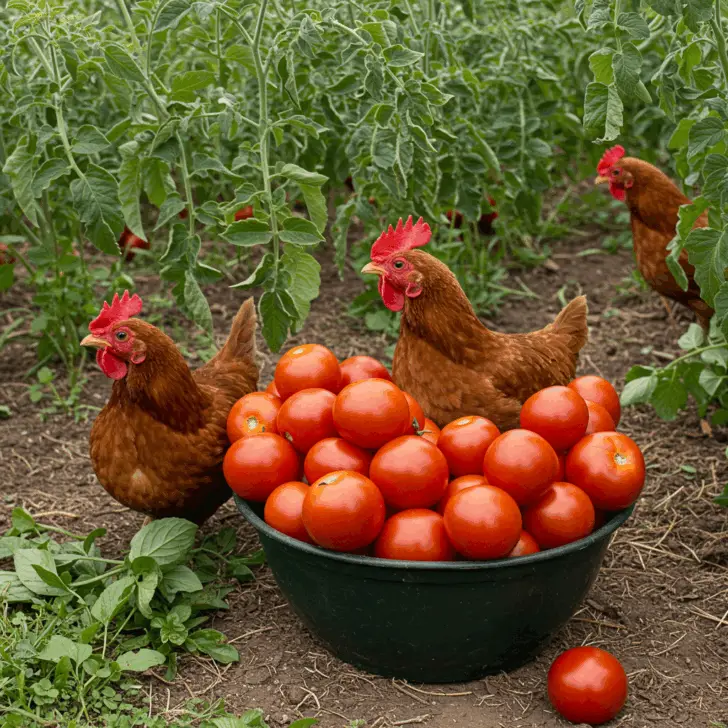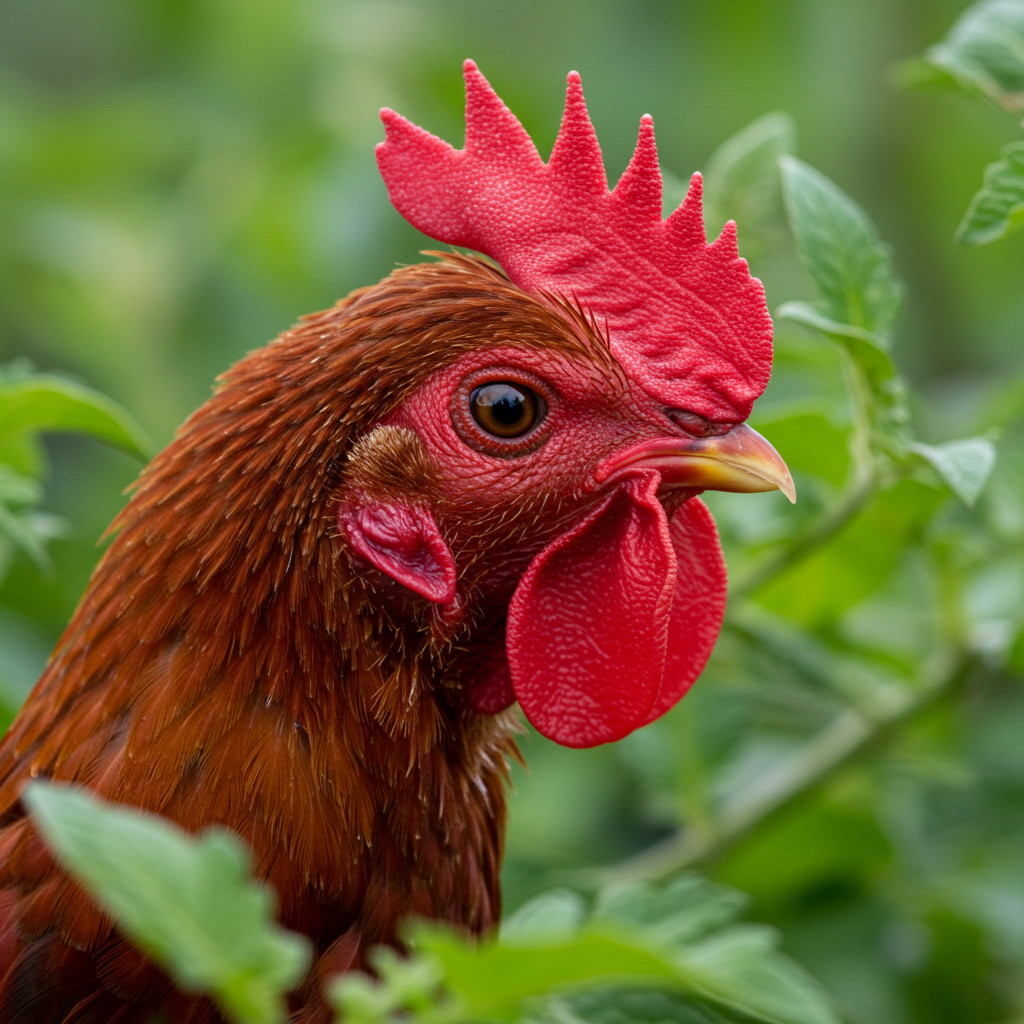
Summary: This comprehensive guide explores whether chickens will eat your prized tomato plants, covering the benefits, risks, and how to best protect your garden while allowing your flock to roam. We’ll delve into what attracts chickens to tomatoes, the potential harm they can cause, and provide practical solutions for maintaining a harmonious balance between your feathered friends and your vegetable patch.
Introduction:
For backyard gardeners and chicken keepers, the question of whether chickens will eat tomato plants is a common concern. While chickens can be beneficial in the garden, helping with pest control and providing fertilizer, their foraging habits can also lead to destruction, particularly for vulnerable seedlings and juicy tomatoes. This guide will provide you with all the information you need to understand this complex relationship and implement strategies for a thriving garden and a happy flock.
JUMP TO TOPIC
Do Chickens Like Tomato Plants?
The simple answer is: yes, chickens can and often do eat tomato plants. They are attracted to the bright red fruits, the green leaves, and even the stems. Several factors contribute to this attraction:
What Attracts Chickens to Tomatoes?
Color: The vibrant red of ripe tomatoes is visually appealing to chickens, much like other colorful fruits and insects.
Curiosity and Foraging Instinct: Chickens are naturally curious and driven to peck and scratch. They explore their environment with their beaks, leading them to sample various plants, including tomatoes.
Nutritional Needs: While not a complete dietary requirement, tomato plants offer some nutritional value, including vitamins and minerals.
Boredom: Chickens confined to small spaces without enough enrichment are more likely to peck at and damage plants out of boredom.
Thirst: In hot weather, chickens might peck at succulent tomato plants for hydration.
The Dangers of Chickens Eating Tomato Plants
While a few pecks might seem harmless, chickens can cause significant damage to tomato plants:
Damage to Plants
Seedling Destruction: Young tomato plants are particularly vulnerable. Chickens can easily uproot or severely damage delicate seedlings, leading to crop failure.
Fruit Damage: Chickens can peck holes in ripe tomatoes, rendering them susceptible to rot and pests.
Foliage Loss: Excessive pecking can strip plants of their leaves, reducing their ability to photosynthesize and produce healthy fruit.
Disease Transmission: Chickens scratching around the base of plants can damage roots and increase the risk of soilborne diseases.
Risks to Chickens
Toxicity (Unripe Tomatoes & Leaves): While ripe tomatoes are generally safe, the leaves and stems, as well as unripe green tomatoes, contain solanine, a toxic compound that can be harmful to chickens if ingested in large quantities. (Source: PoultryDVM)
Pesticide Exposure: If you treat your tomato plants with pesticides, chickens could ingest these chemicals, posing a serious health risk. (Source: EPA)
Protecting Your Tomato Plants from Chickens
Fortunately, there are several effective methods for protecting your tomato plants while still enjoying the benefits of having chickens in your garden:
Physical Barriers
Fencing: Erecting a fence around your tomato patch is the most reliable method. Ensure the fence is high enough and sturdy enough to prevent chickens from flying or jumping over it. Consider using chicken wire or hardware cloth.
Cages: Individual cages or netting placed over plants can provide protection while allowing sunlight and air circulation.
Raised Beds: Planting tomatoes in raised beds makes them less accessible to chickens.
Deterrents
Companion Planting: Planting strong-smelling herbs like mint, oregano, or marigolds around your tomatoes can deter chickens.
Mulching: A thick layer of mulch can make it harder for chickens to access the base of plants and scratch around the roots.
Commercial Repellents: Several commercial chicken repellents are available, but be sure to choose non-toxic options safe for both chickens and plants.
Providing Alternatives
Distraction: Offering chickens alternative food sources, like kitchen scraps or supplemental feed, can keep them occupied and less interested in your tomatoes. ([Internal link to Chicken Feed guide if available])
Enrichment: Providing a stimulating environment with dust baths, perches, and foraging toys can reduce boredom and destructive behaviors. ([Internal Link to Chicken Coop Setup/Enrichment guide if available])
Training
Supervised Garden Time: Allow chickens supervised access to the garden in small increments, rewarding good behavior and gently discouraging them from approaching the tomato plants.
FAQs
Q: Can chickens eat cherry tomatoes?
A; Yes, chickens can eat ripe cherry tomatoes. The same precautions apply regarding unripe tomatoes and plant foliage.
Q: How can I tell if my chickens have eaten too much tomato plant material?
A: Symptoms of solanine poisoning in chickens include lethargy, diarrhea, vomiting, and neurological issues. Contact a veterinarian immediately if you suspect your chicken has been poisoned. ([Internal Link to Chicken Health guide if applicable])
Q: Are tomato cages effective against chickens?
A: Tomato cages can offer some protection, especially against young chicks. However, larger chickens might still be able to reach through the openings. Consider using smaller-gauge netting for added security.
Q: Will chickens eat tomato leaves?
A: Yes, chickens will eat tomato leaves, which, as mentioned, can be toxic.
Q: What other vegetables are toxic to chickens?
A: Other plants toxic to chickens include rhubarb, avocado, potato leaves and skins, and certain types of beans. ([Internal Link to Toxic plants for chickens if available])
Conclusion
Maintaining a balance between a productive garden and a healthy flock of chickens requires understanding their behaviors and implementing appropriate strategies. Although chickens can enjoy ripe tomatoes, the plants themselves, especially the leaves and unripe fruit, pose health risks. By using a combination of physical barriers, deterrents, and providing alternative food sources, you can protect your tomato plants from damage and allow your chickens to roam your garden without causing havoc. This comprehensive guide provides actionable tips for managing your garden and preserving your harvest while ensuring the well-being of your feathered friends.

